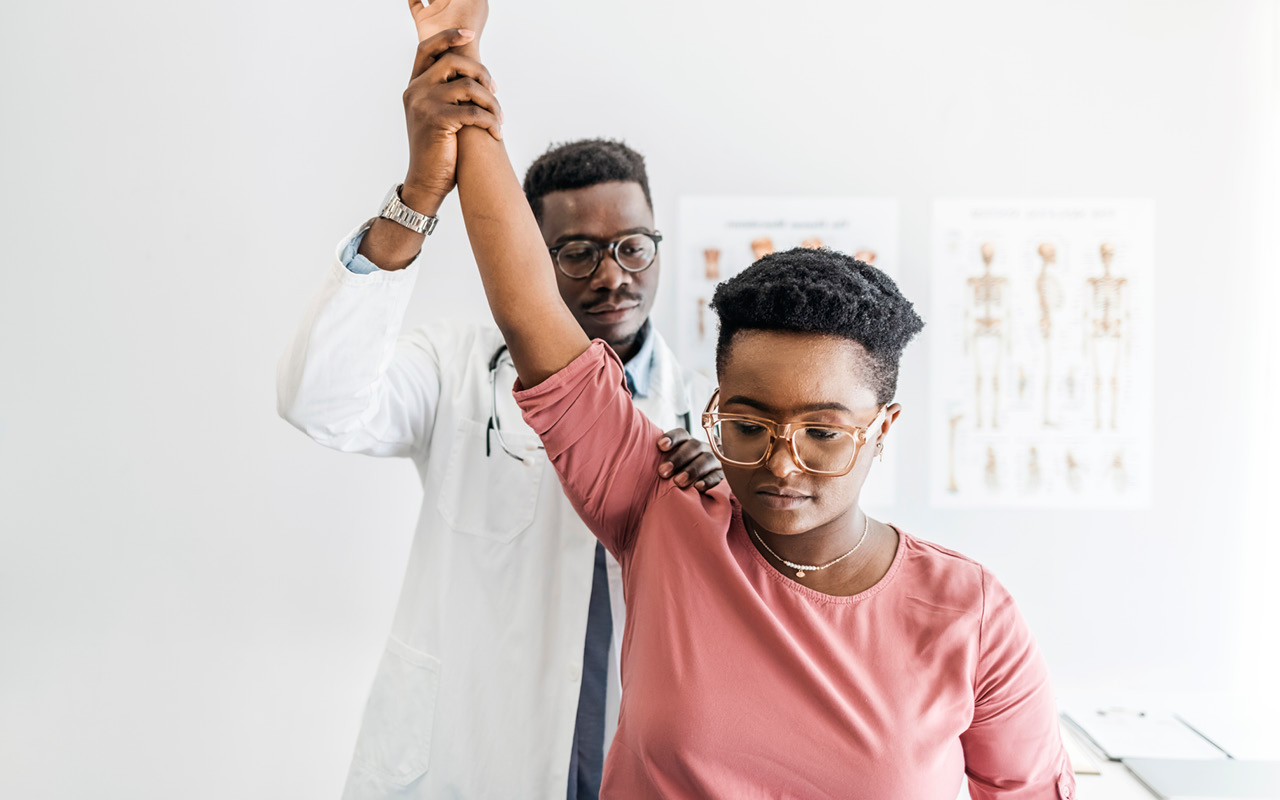 “Often the cause is a bulging or herniated disk, most frequently in your neck or lower back,” says Seth Joseffer, MD, Co-director of the Princeton Medical Center Center for Spine Care, and board certified in spine and neurological surgery. “Spinal disks, which serve as cushions between your vertebrae, have a thick outer layer with a soft inner layer. When some of the soft center pushes partially or entirely out through the outer layer, it results in a bulging or herniated disk and requires medical evaluation.”
“Often the cause is a bulging or herniated disk, most frequently in your neck or lower back,” says Seth Joseffer, MD, Co-director of the Princeton Medical Center Center for Spine Care, and board certified in spine and neurological surgery. “Spinal disks, which serve as cushions between your vertebrae, have a thick outer layer with a soft inner layer. When some of the soft center pushes partially or entirely out through the outer layer, it results in a bulging or herniated disk and requires medical evaluation.”
Often, back pain will gradually improve with rest and home treatment.
 “Naturally, if you suffer a fall or other impact to your back, prompt medical attention should be your priority,” says David Lamb, MD, Co-director of the Center for Spine Care, and board certified in spine and orthopaedic surgery. “In other cases, where there is prolonged discomfort that does not resolve from rest and over-the-counter anti-inflammatory medication, medical attention is also needed. Keep in mind that these problems become more common as we age, since the spine experiences wear and tear and stiffens over time.”
“Naturally, if you suffer a fall or other impact to your back, prompt medical attention should be your priority,” says David Lamb, MD, Co-director of the Center for Spine Care, and board certified in spine and orthopaedic surgery. “In other cases, where there is prolonged discomfort that does not resolve from rest and over-the-counter anti-inflammatory medication, medical attention is also needed. Keep in mind that these problems become more common as we age, since the spine experiences wear and tear and stiffens over time.”
Contact your doctor if back pain lasts more than a few weeks; is severe and does not improve with rest; causes pain, numbness, tingling, or weakness in one or both legs; or is accompanied by unexplained weight loss.
In rare cases, back pain can signal a serious medical problem. Seek immediate care if your back pain causes new bowel or bladder problems; is accompanied by a fever; or follows a fall, blow to your back or other injury.
Treatment Varies
In mild conditions, physical therapy may help resolve your spinal problems. More serious conditions may require a single or series of steroid injections, which reduce inflammation and promote healing. Surgery may be required for severe cases to repair bulging or herniated disks or other conditions. The procedures generally are done through minimally invasive techniques that make recovery quicker.
|
Tips for a Healthy Back:
|

